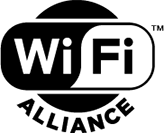Over the last year, dependency on home broadband was significantly heightened due to the “enterprization” of the home, telemedicine, distance learning, entertainment, and the need to stay connected with friends and family. Connectivity has become almost as essential as electricity and water.
The COVID-19 lockdown caused both consumers and broadband service providers alike to recognize that greater dependency on home Wi-Fi® is now a fact of life. Airties recently published the findings from a survey of 1,525 respondents across the U.S., U.K., and Germany. The survey* examined the impact this new normal has had on the perceived needs and expectations for Wi-Fi and the important implications this has for broadband service providers.
With usage up for 90 percent of respondents, the standard Wi-Fi offering now needs to support more bandwidth-hungry applications and more intensive usage—with up to 20 active devices in use at once and a "peak usage" period that has gone from evenings and weekends to continuous 12–15+ hour periods per day.
As cities and nations shifted to remote working this past year, Airties saw a marked development of what we call the “enterprization” of the home, and the lines between home and workplace have permanently blurred. A significant number of companies are considering or have already committed to a hybrid or fully remote work model post-pandemic, with 71 percent of survey respondents reporting that they expect to continue working from home. Users' connected experience becomes critical in a work from home environment. While this is not without challenges, it also represents a massive opportunity for operators who double down on service delivery and seize the opportunity to develop new business models aimed at employers. Recognizing this trend, employers have also started to take action. Thirty-nine percent of consumers surveyed were reimbursed by their employer for new Wi-Fi gear purchased to work from home and 32 percent said their broadband subscription was subsidized by their employer.
The broadband operator is emerging as a key lifeline provider amidst the pandemic. Consumers strongly prefer that their operator take the lead in ensuring a quality Wi-Fi experience and manage the end-to-end delivery of their connected home. This presents another significant opportunity for operators, both now and post-pandemic. Despite the plethora of retail solutions available, 80 percent of those surveyed said they would rather their broadband subscription include home Wi-Fi networking gear instead of purchasing it themselves through retail. This also matched an increased willingness to pay more for top tier offers, Wi-Fi guarantees, advanced self-support features via companion apps, and additional services such as cybersecurity. Most consumers said they would consider upgrading to a faster tier of internet service if it was bundled with whole home Wi-Fi for faster and consistent connectivity in every room. Of those who would upgrade, 70 percent said they would pay at least $5/£5/€5 extra per month.
The survey also found new patterns of connecting, with 65 percent using Wi-Fi in unusual places in their homes, such as garages, attics, and patios. This correlates with the 56 percent who said they have areas in their home where Wi-Fi does not work well, and demonstrates a significant need for whole home Wi-Fi solutions. With the sudden and unexpected rise in remote working and learning, 58 percent of respondents said they encountered more home Wi-Fi issues than before the COVID-19 pandemic, and a remarkable 55 percent said they had daily issues with their home Wi-Fi during the pandemic.
As noted, we have crossed an inflection point where Wi-Fi is as vital as electricity for sustaining our way of life—keeping us productive, informed, entertained, and connected. Even as more countries begin to open, the pandemic has permanently changed consumers’ expectations for and reliance on home Wi-Fi, and the increasing enterprization of the home, as well as remote learning and telemedicine, are trends that are here to stay.
Airties’ priority is to support broadband operators as they focus on keeping their customers connected and productive during these unprecedented times. Additional survey details and the entire report can be downloaded here.
* Survey on Wi-Fi during COVID-19 pandemic from 1,575 respondents across the U.S. (525), UK (525) and Germany (525), who either worked or studied from home, commissioned by Airties in Q2 2021, and conducted by Qualtrics.
The statements and opinions by each Wi-Fi Alliance member and those providing comments are theirs alone, and do not reflect the opinions or views of Wi-Fi Alliance or any other member. Wi-Fi Alliance is not responsible for the accuracy of any of the information provided by any member in posting to or commenting on this blog. Concerns should be directed to info@wi-fi.org.




Add new comment